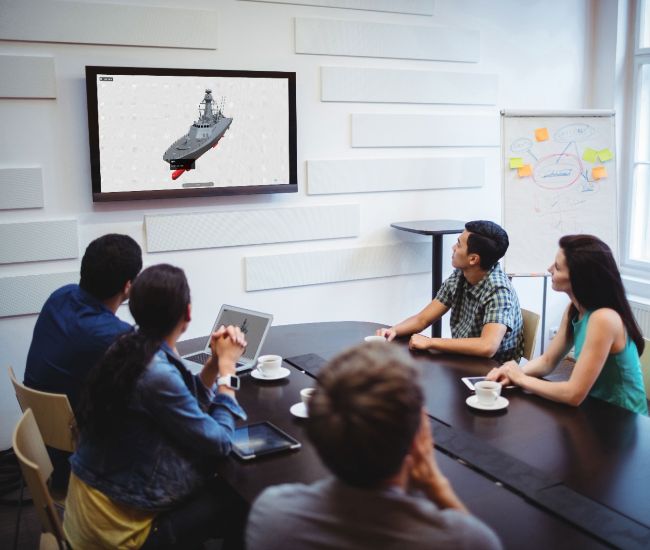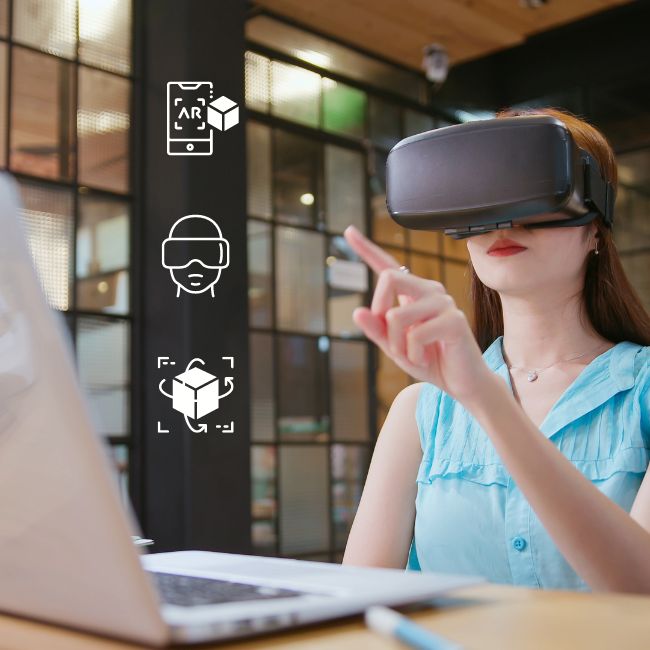#Marketing #VR #AR
What Does the 3D Viewer Do?
In today's digital age, 3D visualization has become an integral part of various industries, ranging from architecture and interior design to gaming and medical imaging.
The Goal:
Understanding 3D Visualization
Before we dive into the specifics of 3D viewers, let's first understand what 3D visualization is. It refers to the process of creating three-dimensional representations of objects or scenes using computer-generated imagery (CGI). This technology allows us to view objects from different angles, providing a more immersive and detailed experience.
What is Clooned?
3D Product Marketing Tool: Web, AR, VR
Clooned is available across multiple platforms and technologies. Users can experience your 3D models and environments in a variety of ways.


The Role of 3D Viewers
A 3D viewer serves as a gateway to explore and interact with 3D models and environments. It acts as a virtual window, enabling users to manipulate, rotate, and zoom in on 3D objects. Think of it as your personal tour guide through the world of 3D visualization.
How Does a 3D Viewer Work?
At its core, a 3D viewer works by rendering 3D data into 2D images that our eyes can perceive. It utilizes algorithms to calculate the position, lighting, and shading of objects, creating a realistic representation. This process happens in real-time, allowing for dynamic interactions.
Types of 3D Viewers
There are various types of 3D viewers available, each tailored to specific needs. Some are browser-based, while others are standalone software. Virtual reality headsets and augmented reality apps also incorporate 3D viewing capabilities.
Applications of 3D Viewers
3D viewers find applications in a multitude of industries. Architects use them to visualize building designs, gamers immerse themselves in virtual worlds, and medical professionals explore 3D scans of the human body. Additionally, e-commerce businesses are adopting 3D viewers to showcase products in a more interactive way.
Benefits of Using 3D Viewers
The benefits of 3D viewers are numerous. They enhance understanding, improve decision-making, and provide an engaging experience. Businesses can use them to reduce product returns, while educators can make learning more interactive.
Challenges and Limitations
While 3D viewers offer immense potential, they also come with challenges. Compatibility issues, the need for powerful hardware, and the learning curve associated with 3D modeling software can be hurdles for some users.


Future Trends in 3D Viewing Technology
The future of 3D viewing is exciting. We can expect advancements in real-time rendering, increased integration with artificial intelligence, and more accessible 3D modeling tools.
Choosing the Right 3D Viewer
Selecting the right 3D viewer depends on your specific requirements. Factors such as platform compatibility, ease of use, and pricing should all be considered.
Clooned is the best user-friendly and affordable 3D viewer.
Show your products with 3D Viewer Tool
Try Clooned today and take your products to the next level!
Contact us for more information.
Integration of 3D Viewers in Industries
Industries are increasingly integrating 3D viewers into their workflows. From automotive design to fashion, the ability to visualize products and concepts in 3D is transforming how businesses operate.
3D Viewers and Virtual Reality
Virtual reality (VR) relies heavily on 3D viewers to create immersive experiences. Whether you're exploring a virtual world or attending a virtual meeting, a 3D viewer is at the heart of the experience.
Enhancing User Experience
3D viewers are all about enhancing user experience. They allow users to explore products or spaces in detail, fostering a deeper connection.

Summary
In conclusion, 3D viewers are revolutionizing how we perceive and interact with the world. Whether for professional or recreational purposes, they offer a gateway to immersive experiences that were once unimaginable.
Show your products with 3D Viewer Tool
Try Clooned today and take your products to the next level!
Contact us for more information.
©2023. GUNERY. All Rights Reserved.

